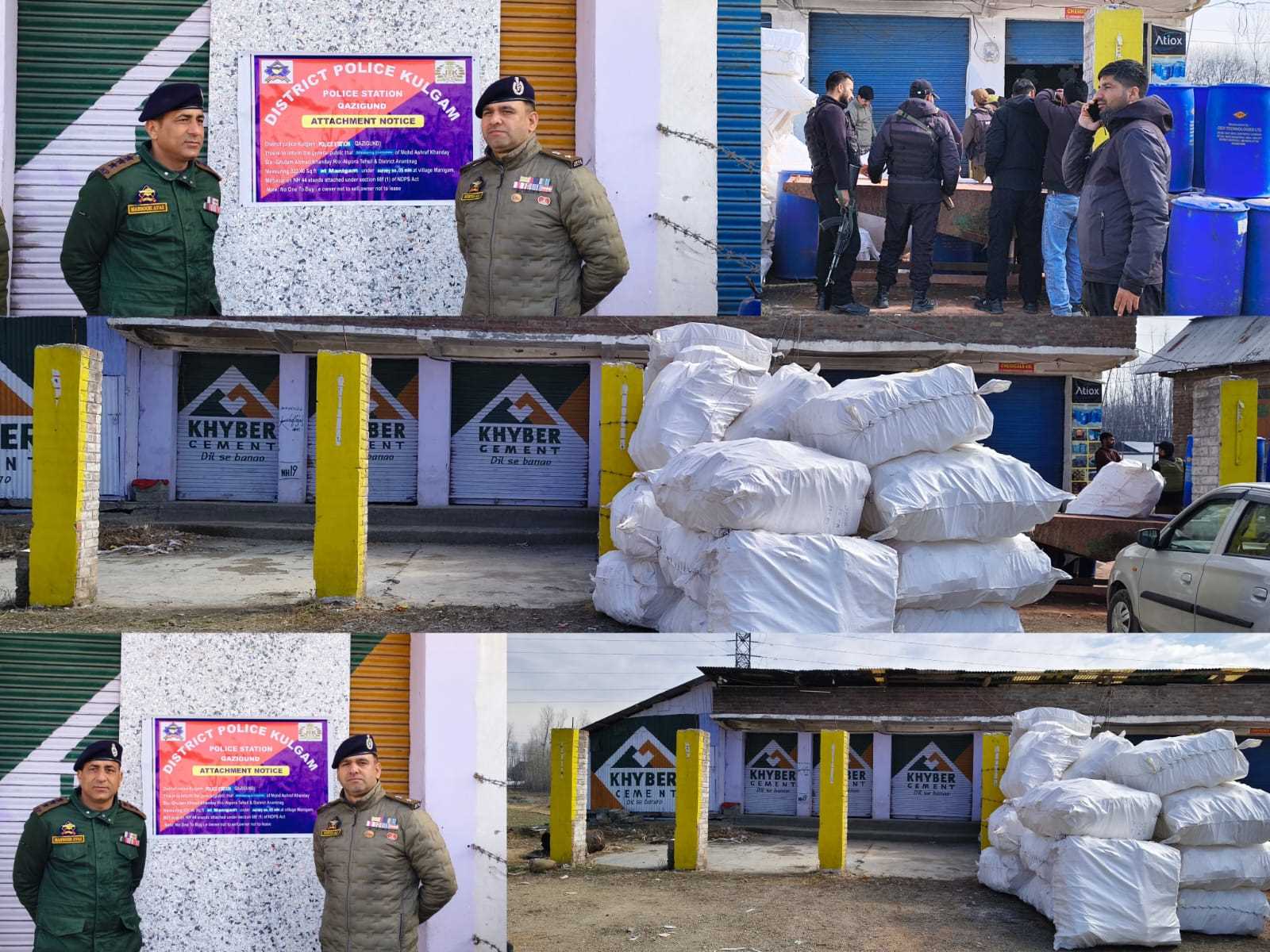
Environmental Impact of Conflicts: Armed conflicts often lead to severe environmental degradation, as resources are exploited, ecosystems are disrupted, and pollution is rampant
The International Day for Preventing Environment in Wars and Armed Conflicts, marked on November 6th annually, serves as a poignant reminder of the grievous toll that warfare exacts on our planet's delicate ecosystems. It is a solemn call to arms to protect the environment amidst the chaos of violence. This day serves as a stark reminder that the environment frequently bears the brunt of war's ravages, enduring harm that extends beyond the immediate conflict zones, impacting not just the natural world but the very livelihoods and health of human populations. In the following sections, we will delve into the profound significance of this observance and the pivotal role it plays in safeguarding our environment and fostering lasting global peace.
The Origin of the International Day
The International Day for Preventing Environment in Wars and Armed Conflicts was established by the United Nations General Assembly in 2001, with Resolution 56/4. The date, November 6th, was chosen in memory of the tragic loss of the United Nations Environmental Programme (UNEP) Executive Director, Dr. Mostafa Tolba, who passed away on this day. Dr. Tolba was a visionary leader and one of the key figures in promoting environmental sustainability, making the choice of this date especially poignant.
Why is this Day Important?
Environmental Impact of Conflicts: Armed conflicts often lead to severe environmental degradation, as resources are exploited, ecosystems are disrupted, and pollution is rampant. During wartime, forests are felled for fuel and shelter, rivers are polluted with toxic substances, and wildlife populations are decimated. Landmines and unexploded ordnance pose long-term threats to both human and environmental safety.
Humanitarian Consequences
The destruction of natural resources, such as clean water sources and arable land, not only affects the environment but also jeopardizes the well-being of affected populations. Lack of access to essential resources can lead to displacement, food insecurity, and the spread of diseases, exacerbating the suffering of civilians.
International Cooperation
The International Day for Preventing Environment in Wars and Armed Conflicts highlights the need for international cooperation to address the environmental consequences of conflicts. The environmental impact of war transcends borders, and cooperation is essential to mitigate damage and promote post-conflict recovery.
Promotion of Peace and Security
By focusing on the environment during times of conflict, this day promotes the idea that environmental protection and peace are interconnected. Recognizing and addressing the environmental consequences of war can contribute to conflict prevention and post-conflict peacebuilding.
Actions for Environmental Protection During Conflicts
International Agreements
Several international agreements and protocols address the protection of the environment during armed conflicts. Notable examples include the Geneva Conventions and the Additional Protocols, which prohibit the use of environmental destruction as a method of warfare.
The Role of UNEP
The United Nations Environmental Programme plays a critical role in assessing and responding to the environmental impacts of conflicts. It conducts post-conflict environmental assessments and supports countries in their efforts to restore their natural resources.
Advocacy and Awareness
On the International Day for Preventing Environment in Wars and Armed Conflicts, various organizations and individuals raise awareness about the issue. They call for the responsible use of resources during conflicts and the inclusion of environmental considerations in peace negotiations.
Support for Affected Communities
Humanitarian organizations provide vital support to communities affected by conflict, including assistance with clean water, food security, and healthcare. These efforts help mitigate the environmental and humanitarian consequences of war.
India's Commitment to Global Peace and Environmental Stewardship
India, a stalwart in the pursuit of global peace, has played a pivotal role in promoting harmony and environmental conservation amid conflicts. With its commitment to diplomacy, peacekeeping missions, and sustainable development, India showcases a resilient dedication to resolving conflicts without causing further environmental degradation. Its proactive engagement in international forums and its emphasis on fostering peace exemplify its responsibility not only toward its own people but also toward safeguarding the planet we all share. This dedication aligns with the theme of the G20, "One Earth, One Family, One Future" which underscores the interconnectedness of nations in addressing global challenges, including the preservation of our environment during wars and conflicts. India's role in advocating for environmental protection during times of strife stands as a testament to its dedication to a more peaceful and ecologically sustainable world, in keeping with the spirit of the G20 theme.
Conclusion
The International Day for Preventing Environment in Wars and Armed Conflicts reminds us of the interconnectedness of environmental protection and peace. The devastating consequences of war on the environment have far-reaching impacts on both the natural world and human populations. By raising awareness, promoting international cooperation, and advocating for responsible resource management during conflicts, we can work towards a more peaceful and sustainable world. On this day, let us remember the importance of preserving our planet, even in the midst of turmoil, and the role it plays in building a better future for all.
Emai:--------------------fidafirdous8@gmail.com



Environmental Impact of Conflicts: Armed conflicts often lead to severe environmental degradation, as resources are exploited, ecosystems are disrupted, and pollution is rampant
The International Day for Preventing Environment in Wars and Armed Conflicts, marked on November 6th annually, serves as a poignant reminder of the grievous toll that warfare exacts on our planet's delicate ecosystems. It is a solemn call to arms to protect the environment amidst the chaos of violence. This day serves as a stark reminder that the environment frequently bears the brunt of war's ravages, enduring harm that extends beyond the immediate conflict zones, impacting not just the natural world but the very livelihoods and health of human populations. In the following sections, we will delve into the profound significance of this observance and the pivotal role it plays in safeguarding our environment and fostering lasting global peace.
The Origin of the International Day
The International Day for Preventing Environment in Wars and Armed Conflicts was established by the United Nations General Assembly in 2001, with Resolution 56/4. The date, November 6th, was chosen in memory of the tragic loss of the United Nations Environmental Programme (UNEP) Executive Director, Dr. Mostafa Tolba, who passed away on this day. Dr. Tolba was a visionary leader and one of the key figures in promoting environmental sustainability, making the choice of this date especially poignant.
Why is this Day Important?
Environmental Impact of Conflicts: Armed conflicts often lead to severe environmental degradation, as resources are exploited, ecosystems are disrupted, and pollution is rampant. During wartime, forests are felled for fuel and shelter, rivers are polluted with toxic substances, and wildlife populations are decimated. Landmines and unexploded ordnance pose long-term threats to both human and environmental safety.
Humanitarian Consequences
The destruction of natural resources, such as clean water sources and arable land, not only affects the environment but also jeopardizes the well-being of affected populations. Lack of access to essential resources can lead to displacement, food insecurity, and the spread of diseases, exacerbating the suffering of civilians.
International Cooperation
The International Day for Preventing Environment in Wars and Armed Conflicts highlights the need for international cooperation to address the environmental consequences of conflicts. The environmental impact of war transcends borders, and cooperation is essential to mitigate damage and promote post-conflict recovery.
Promotion of Peace and Security
By focusing on the environment during times of conflict, this day promotes the idea that environmental protection and peace are interconnected. Recognizing and addressing the environmental consequences of war can contribute to conflict prevention and post-conflict peacebuilding.
Actions for Environmental Protection During Conflicts
International Agreements
Several international agreements and protocols address the protection of the environment during armed conflicts. Notable examples include the Geneva Conventions and the Additional Protocols, which prohibit the use of environmental destruction as a method of warfare.
The Role of UNEP
The United Nations Environmental Programme plays a critical role in assessing and responding to the environmental impacts of conflicts. It conducts post-conflict environmental assessments and supports countries in their efforts to restore their natural resources.
Advocacy and Awareness
On the International Day for Preventing Environment in Wars and Armed Conflicts, various organizations and individuals raise awareness about the issue. They call for the responsible use of resources during conflicts and the inclusion of environmental considerations in peace negotiations.
Support for Affected Communities
Humanitarian organizations provide vital support to communities affected by conflict, including assistance with clean water, food security, and healthcare. These efforts help mitigate the environmental and humanitarian consequences of war.
India's Commitment to Global Peace and Environmental Stewardship
India, a stalwart in the pursuit of global peace, has played a pivotal role in promoting harmony and environmental conservation amid conflicts. With its commitment to diplomacy, peacekeeping missions, and sustainable development, India showcases a resilient dedication to resolving conflicts without causing further environmental degradation. Its proactive engagement in international forums and its emphasis on fostering peace exemplify its responsibility not only toward its own people but also toward safeguarding the planet we all share. This dedication aligns with the theme of the G20, "One Earth, One Family, One Future" which underscores the interconnectedness of nations in addressing global challenges, including the preservation of our environment during wars and conflicts. India's role in advocating for environmental protection during times of strife stands as a testament to its dedication to a more peaceful and ecologically sustainable world, in keeping with the spirit of the G20 theme.
Conclusion
The International Day for Preventing Environment in Wars and Armed Conflicts reminds us of the interconnectedness of environmental protection and peace. The devastating consequences of war on the environment have far-reaching impacts on both the natural world and human populations. By raising awareness, promoting international cooperation, and advocating for responsible resource management during conflicts, we can work towards a more peaceful and sustainable world. On this day, let us remember the importance of preserving our planet, even in the midst of turmoil, and the role it plays in building a better future for all.
Emai:--------------------fidafirdous8@gmail.com
© Copyright 2023 brighterkashmir.com All Rights Reserved. Quantum Technologies